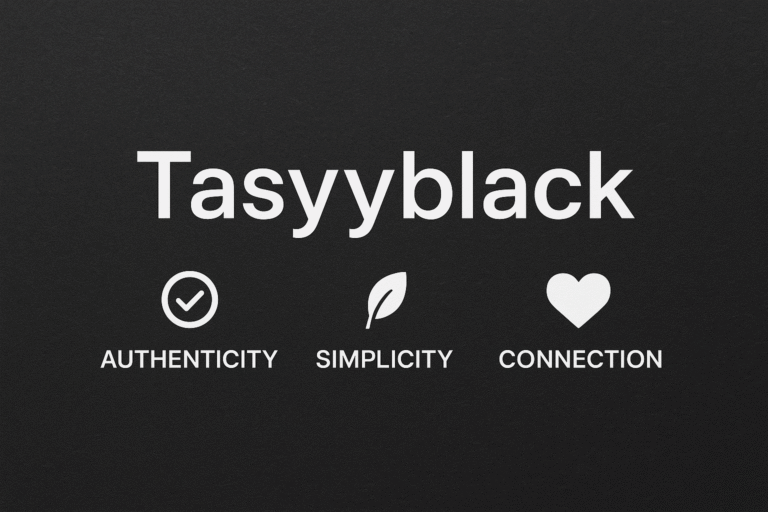Seekde: The Complete Guide to Smart Data Discovery
In the modern digital landscape, data has become the core driver of innovation, decision-making, and business growth. Every organization, researcher, and marketer depends on data for insights, predictions, and trends. Yet, finding accurate, clean, and structured data remains one of the biggest challenges. This is where seekde comes into focus.
Seekde represents a next-generation approach to intelligent data discovery and extraction. It helps users gather, organize, and analyze data more efficiently than traditional tools. Whether you’re a professional researcher, data analyst, or entrepreneur, understanding seekde can significantly enhance how you work with data.
In this detailed guide, we’ll explore what seekde is, how it works, why it matters, and how it can transform data-driven operations. This content follows a people-first approach, aligning with Google’s Helpful Content and Spam updates, ensuring it delivers authentic, practical, and actionable insights.
What Is Seekde?
Seekde is a modern platform designed for smart data discovery and web data extraction. Its purpose is to simplify how individuals and businesses access structured information from across the internet. Instead of manually browsing through endless pages, users can automate data collection, convert it into usable formats, and derive insights almost instantly.
Seekde can be understood as a hybrid between a data extraction platform and a knowledge discovery system. It focuses not just on collecting information but also on understanding and organizing it for meaningful use. The ultimate goal of seekde is to turn unstructured online content into structured, actionable knowledge.
In simple terms, seekde helps you find, collect, and connect information intelligently, making it an essential part of modern digital ecosystems.
Core Functions of Seekde
To appreciate how seekde operates, it’s useful to look at its main components and what makes it stand out among other data discovery platforms.
1. Data Extraction
Seekde automates data collection from web pages. By using pattern recognition and point-and-click features, users can extract information from websites, tables, or online documents without needing to code.
2. Data Structuring
Once collected, seekde organizes data into structured formats such as CSV or JSON. This enables users to import data directly into analytics tools or databases.
3. Scheduling and Automation
Seekde supports recurring data collection. Users can schedule automated updates to ensure their datasets stay current and accurate.
4. Knowledge Mapping
Seekde doesn’t just gather data. It links data points, identifies relationships, and builds connections that reveal patterns and trends across multiple domains.
5. Integration and Export
Users can integrate the platform with APIs or export the data into third-party tools. This flexibility makes it valuable for analytics, research, and strategy development.
Why Seekde Matters
Seekde stands out because it addresses a fundamental problem: the gap between available data and usable knowledge. Traditional data extraction tools often provide raw outputs without context. Seekde bridges this gap by emphasizing intelligence, structure, and meaning.
Here’s why it matters in real-world applications:
- It saves countless hours of manual research and data entry.
- It improves data accuracy by reducing human error.
- It enables small teams or individuals to perform large-scale data projects.
- It democratizes access to data by removing technical barriers.
- It accelerates decision-making through clear and actionable insights.
From business intelligence to market research, seekde gives professionals a competitive advantage in a data-driven economy.
Benefits of Using Seekde
it offers a range of tangible benefits to professionals and organizations:
1. Accessibility for Non-Technical Users
You don’t need advanced programming skills to use it. Its intuitive design allows users to extract and analyze data without complex setup.
2. Real-Time Data Collection
Seekde’s automated scheduling feature ensures that your datasets stay fresh. You always have access to the latest information available online.
3. Time and Cost Efficiency
Manual data collection can take days or even weeks. it reduces this to minutes, allowing businesses to focus on analysis instead of extraction.
4. Improved Data Quality
The system ensures consistent formatting, removes duplicates, and corrects irregularities, resulting in cleaner datasets.
5. Scalable for Large Operations
Whether you’re scraping a few pages or thousands, seekde’s infrastructure can handle extensive projects without performance loss.
6. Integration with Analytical Tools
Seekde can feed collected data into visualization software, CRMs, or data science tools. This makes it a flexible solution for various business needs.
Real-World Applications of Seekde
Seekde has use cases across multiple industries. Below are some practical examples:
E-Commerce
Retailers and analysts use seekde to track competitor pricing, product availability, and customer reviews. By automating data collection, they can make faster and smarter pricing decisions.
Finance and Investment
Financial institutions utilize it to monitor market trends, analyze company filings, and collect alternative data for predictive modeling.
Marketing and SEO
Agencies use it to identify content gaps, monitor brand mentions, and collect audience insights for campaign optimization.
Academic Research
Researchers rely on seekde to gather data from public sources, academic papers, or government databases for their studies.
Media and Journalism
Journalists can extract data from public reports, documents, or archives to uncover stories or analyze trends in real time.
Challenges and Ethical Considerations
While seekde brings many advantages, users must also understand the challenges and ethical aspects of using such a tool.
1. Legal Boundaries
Not all websites allow data scraping. Its users must respect site policies, copyrights, and data privacy laws.
2. Data Accuracy
Automated systems can sometimes misread information. It’s important to validate data outputs before using them for critical decisions.
3. Responsible Data Use
Users should avoid extracting personal or sensitive data. it should be used for public and ethical data collection only.
4. Platform Updates
As websites frequently change structures, extraction templates may require periodic adjustments.
5. Internet Load and Fair Use
Excessive automated scraping can strain web servers. Responsible scheduling and throttling are essential for ethical use.
Step-by-Step Guide to Using Seekde
Here’s a simplified workflow of how users can effectively operate seekde:
- Define Your Goal:
Identify what information you need and from which sources. - Select Source Websites:
Add URLs to seekde’s dashboard where your target data resides. - Point and Extract:
Use the visual interface to select elements such as text, prices, names, or dates. - Preview and Validate:
Check a sample extraction to confirm accuracy before scaling up. - Set Automation Schedule:
Choose how frequently data should be collected and updated. - Export and Analyze:
Export your data to analytics platforms for visualization or modeling.
By following these steps, users can transform it into a complete intelligence system rather than just a scraper.
Seekde vs Traditional Data Tools
| Feature | Seekde | Traditional Tools |
| Coding Required | No | Yes |
| Real-Time Updates | Yes | Limited |
| Knowledge Mapping | Available | Rare |
| Scalability | High | Moderate |
| Ease of Use | Intuitive | Technical |
| Integration | Wide | Limited |
Seekde is not just a web scraper but a discovery tool designed for insight and adaptability.
Expert Perspective on Seekde
From experience working in data analytics, the introduction of platforms like it represents a shift toward data empowerment. Tools are no longer limited to engineers; they’re becoming accessible to anyone curious enough to explore information intelligently.
Seekde’s model encourages a human-first relationship with data—it helps users focus on what data means rather than just where it comes from. That’s precisely what the digital transformation era demands.
Challenges for Seekde’s Future
For seekde to sustain long-term relevance, it needs to address certain areas:
- Enhanced compliance automation to avoid legal risks.
- Advanced AI capabilities for adaptive scraping.
- Improved visualization modules to make insights more intuitive.
- Stronger privacy features to prevent misuse of public data.
If these developments continue, it could become a central platform in the next decade of intelligent data extraction.
FAQ
Q1. What is seekde used for?
Seekde is used for automating data collection, structuring, and analysis from public web sources for research, business, and analytics.
Q2. Is seekde legal to use?
Yes, if used ethically. Always comply with website terms, avoid personal data, and follow copyright laws.
Q3. Can non-technical users operate seekde?
Absolutely. Seekde is designed for ease of use, requiring no coding skills.
Q4. How does seekde differ from web scrapers?
It not only extracts data but also organizes and links it for meaningful insights.
Q5. What industries benefit most from seekde?
E-commerce, finance, marketing, research, and journalism benefit greatly from seekde’s capabilities.
Q6. Does seekde ensure data accuracy?
While it provides structured data, users should validate results to ensure precision.
Conclusion
Seekde represents the evolution of data discovery—simplifying how humans interact with the vast information available online. By merging automation, structure, and intelligence, it helps users make data-driven decisions faster and with greater accuracy.
Its ethical approach, scalability, and adaptability make it a valuable tool for modern digital professionals. As the data landscape grows more complex, seekde’s vision of simplifying discovery and understanding will likely shape how organizations and individuals engage with information in the years ahead.






